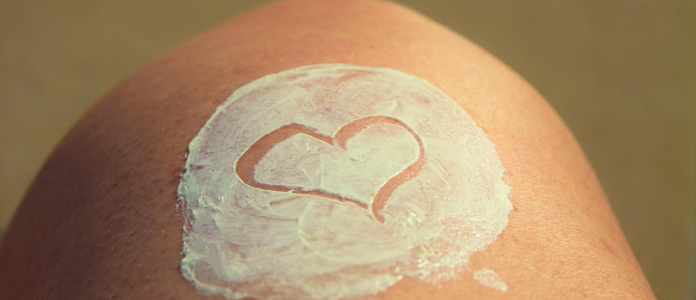Sunscreen is a popular skincare purchase and the most powerful anti-ageing product on the market, provided you chose the right type of sunscreen and that it is applied consistently.
What better time to master your skin’s sun protection than during Melanoma Skin Cancer Awareness Month this May.
Melanoma is the third most common type of skin cancer that begins in the melanocytes. These cells give you your skin colour. Melanoma may begin as a mole, which is why it is crucial to have your moles checked regularly by your doctor.

To help you perfect your skin’s sunscreen routine, we asked local skincare brand SKIN functional to give us a breakdown of how to choose the right sunscreen for your skin:
Sunscreens include mineral and chemical components. This is the difference:
- A mineral sunscreen is an SPF 50 and protects against 99% UV radiation. It has been tested to reduce pollution-induced free radicals by over 85% with high-transparency zinc oxide to reduce signs of ageing. The product enhances skin moisture by over 90% in 24hrs.
- A chemical sunscreen is also SPF 50 and offers UVA + UVB protection. This lightweight sunscreen also offers anti-ageing and anti-oxidant properties without leaving a grey or white cast.
Tip: Choose sunscreen suitable for all skin types, as your skin does not remain the same all year round and the environment impacts the characteristics of your skin. Choosing a sunscreen with a high SPF that can be used for all seasons is easier on your pocket and your skin.
Try: We are loving SKIN functional’s new product-line called SUN Functional, which is solely focused on sun care and skin protection. The products currently includes a mineral and a chemical sunscreen and it is silicone-free, paraben-free, fragrance-free, cruelty-free, FDA USA approved and leaves no white cast.
What else should you be doing to protect your skin from the sun?
- Seek shade when possible.
- Use sunscreen (SPF of 15 or higher).
- Wear appropriate clothing (sunglasses, hat, long-sleeved shirts, long pants, and skirts) when possible.
- Avoid tanning beds.
- Check your skin for all the spots (moles, freckles, and age spots) on your body. If you notice any new or changing spots, contact a health care provider.
- Know your family history of skin cancer.






